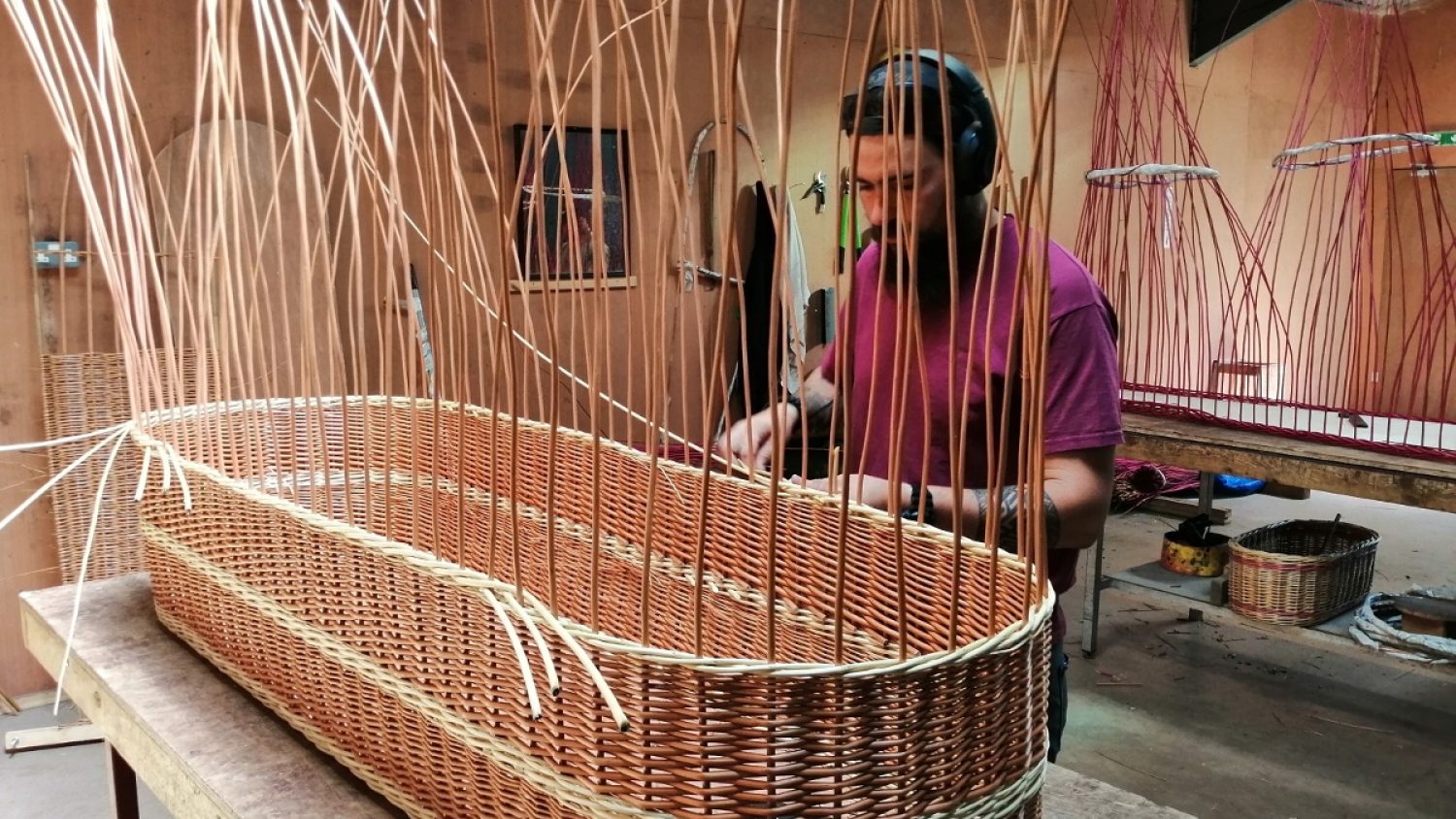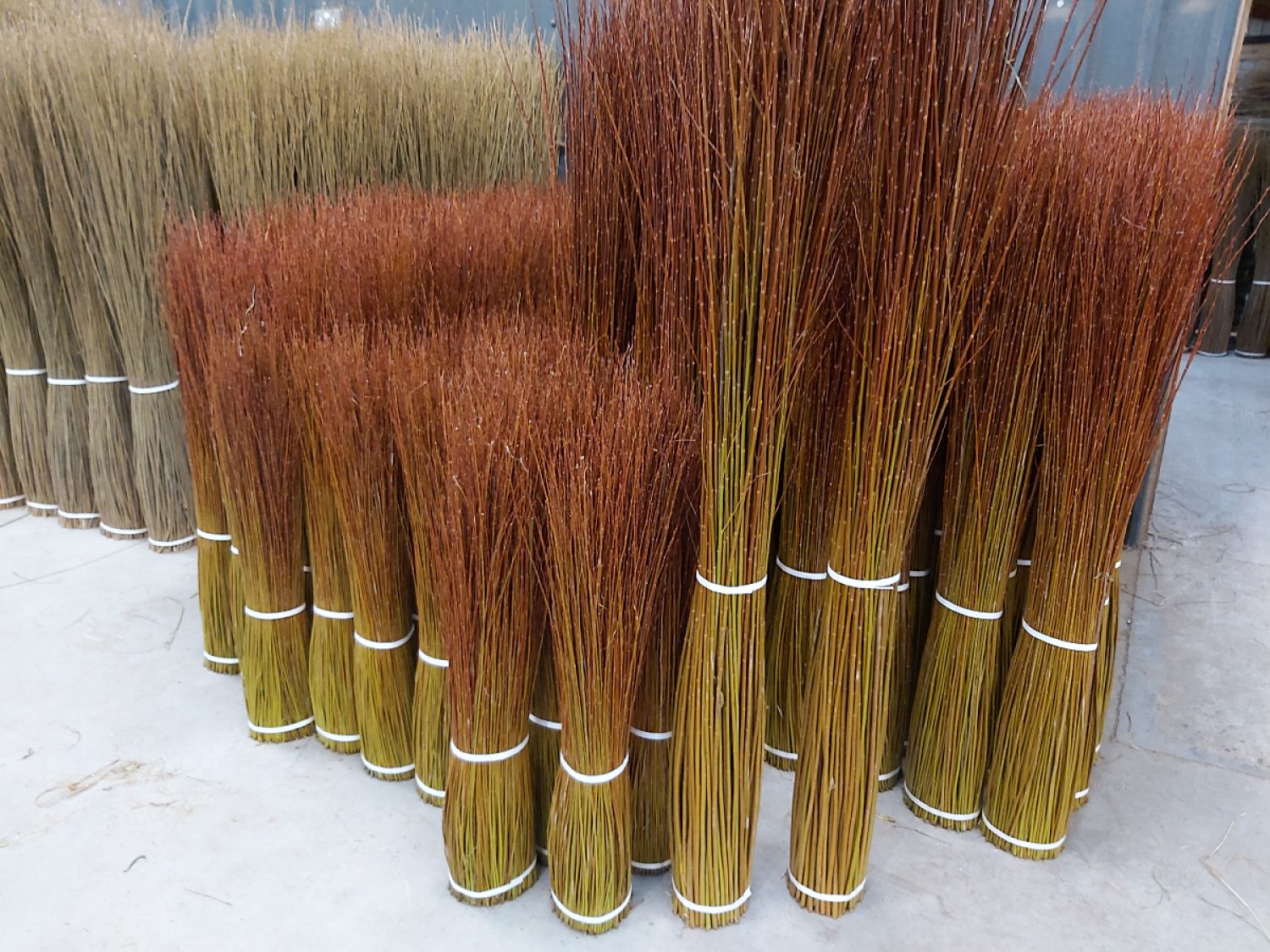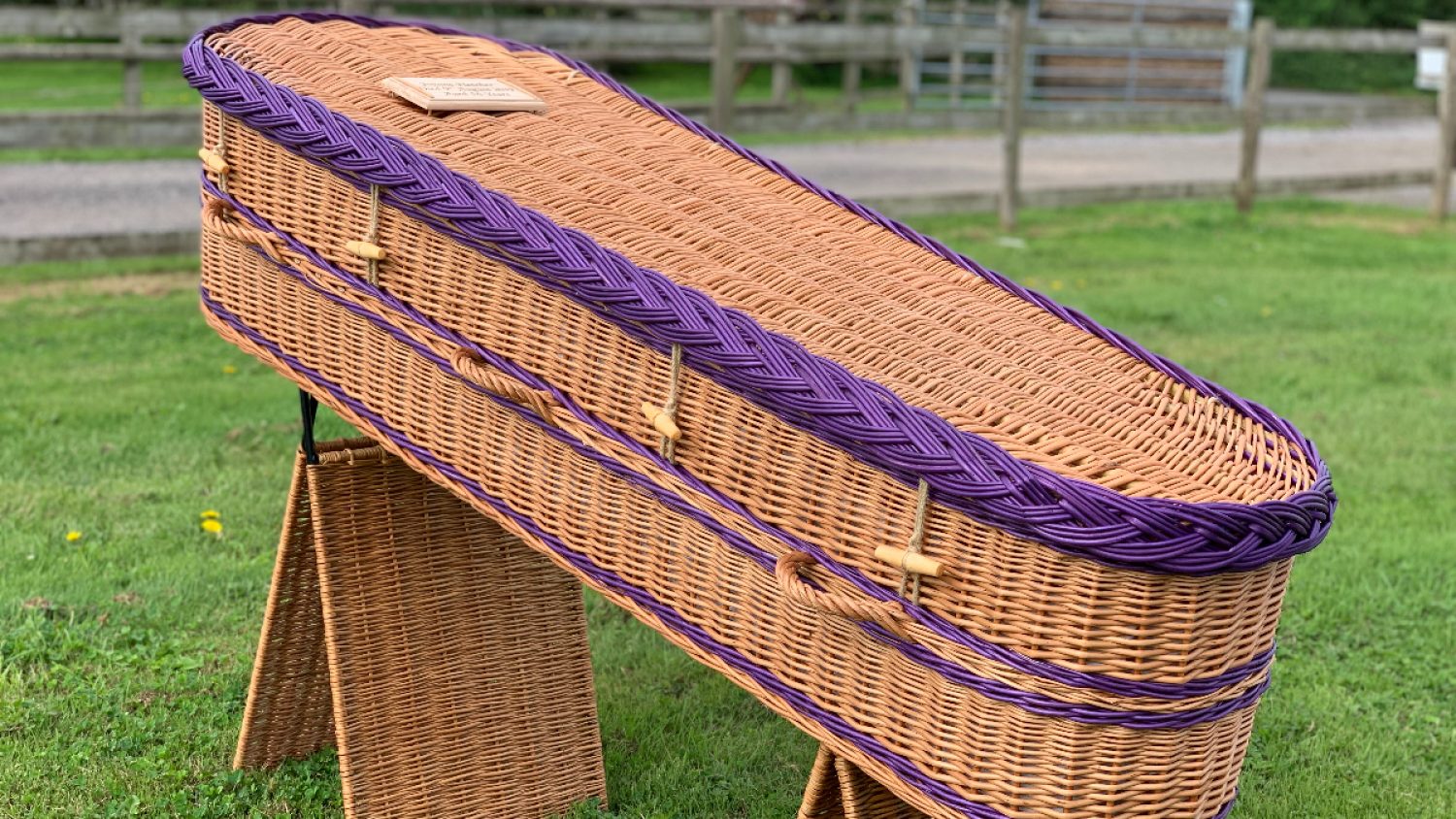Five minute read
In our second spotlight on sustainable suppliers, we speak to Ellen Musgrove about the willow coffins crafted by her family business, Musgrove Willows.
It’s a busy Monday morning, but Ellen has found a few moments to talk to me. Although not until after the regular team catch-up and coffee break. It’s clear that looking after the team is an important thing here.
“It really is a family business,” says Ellen. “Even if they are not family members, everyone feels like family to us — we will always help out if someone has a problem. We all take great pride in our work.”
On Zoom, her office looks efficient but cosy. There is a hand-made willow sculpture of a hare nestled alongside files of paperwork and framed certificates of awards that the business has won.
We get straight to talking about how care for the environment is woven through every part of their work, starting with how the willow is grown. “We have 200 acres of willow just outside our back door. Once planted, a willow bed will last for 30 years, maybe even up to 60, with minimal intervention,” Ellen explains.
“We cut it every winter, but we only spray when we absolutely have to and we never blanket spray. We work with an agronomist to look at the impact on the surrounding environment, wildlife and water courses. It’s important to us that we manage the environment properly. We walk the willow beds every week and if there’s nothing we need to do, then we do nothing.”
“The processing is all done here on site. We dye white willow for some of the more vibrant coffin colours, but we do all this by hand using non-toxic dyes. Our carbon footprint is very low, actually it’s negative.”
Preparing for the future
Relying so closely on the natural environment means that Ellen and the team are very aware of the ways in which it is changing.
“Summers are getting hotter and winters milder. The changes in temperature suit different varieties of willow, some of which have not been common in the Somerset levels before.
“We look for varieties that are disease resistant and less susceptible to insect damage. And of course, things are still changing all the time. The changes we make now are not just for the business today, but for the future as well.”
Learning from the past
Musgrove Willows was set up nearly a hundred years ago by Ellen’s husband’s grandfather, but it does not cling onto a rose-tinted view of the past.
Ellen points to a picture on the shelf above her — it’s a charcoal sketch of her husband and his dad, stripping willow the old-fashioned way using a single drum stripping machine. Those days are long gone.
The existence of the picture itself is testament to the way the business has grown and diversified — Ellen tells me that it is by Kate Lynch, a local artist who uses the same willow charcoal which, of course, is produced and sold right here.
So how have they modernised over the years? “We’ve invested in machinery to make the job easier. For example, we used to throw bundles of willow into boiling water to release the colour and the tannins, and then hoick them out by hand. Now we have a gantry and crate — it’s much safer.
“We have a specially-designed machine for planting. It now takes five people to do in one day what used to take twenty. It’s less labour intensive, less back-breaking, but the result looks the same as when we plant by hand.
“There are some areas we can’t make changes, at least not yet. We cannot mechanise the grading and weaving because it wouldn't be good or efficient enough.
"This is not an old people’s industry, some of our weavers are quite young. We are privileged and proud to be able to teach them a transferable skill that they’ll have for life.
"They love it when people see what they do. They thrive on knowing that people will see and touch their work. We are continuing an ancient craft by training new and younger people to become experts in it.”
A healing process
Soon after Musgrove Willows first started making coffins, 13 years ago, a local basket-maker that they knew died suddenly. His son, who had moved overseas not long before, came to Ellen with a surprising question: “He asked us, can I come and help weave the coffin?”
Ellen pauses, remembering the moment. “I can see it now, he cried the whole time he was here. It was so emotional for him. His dad had taught him the craft and now he felt he was able to give something back. We thought, if it could be so positive for him, we should try and offer it to other families too.”
And they do. Now, Ellen and the team welcome two or three families into their workshop each week.
“People come to weave coffins for their children, their siblings, their parents. Some of the stories are tragic, but they all leave feeling that they have done something positive. It’s a healing process. They can keep the willow trimmings too, and make them into stars, hearts or other keepsakes.
“We have had young children come to help weave. It helps them understand what is happening and, because the first time they see the coffin isn’t at the funeral, they learn that it isn’t something to be frightened of. They have been part of the whole process.”
The willow coffins that we see at Poppy’s come right at the end of this process of growing, gathering, grading, rinsing, dying, weaving — but it’s clear that every step is done with the same care, attention and creativity.
Find more about Musgrove Willows
Read our interviews with Yuli Somme, the UK's only maker of woollen shrouds, or with graveyard geologist Nina Morgan.
To stay in touch with all the latest news and updates from Poppy's by email, sign up here or contact us if you need help planning a funeral.


